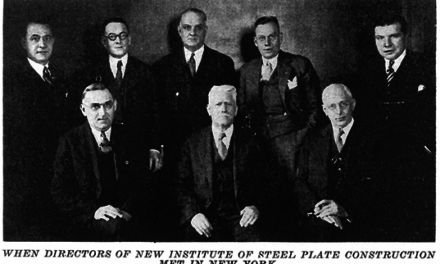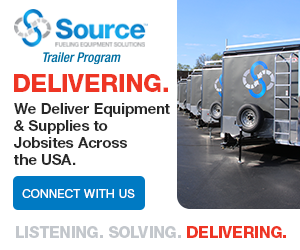By Brian Reynolds
For the past 30 years I’ve been under the impression that EPA compliance rules and regulations have actually been successfully working for the purposes for which they were originally intended. Not that the new rules won’t work, but if it ain’t broke, don’t fix it! It’s almost as if somebody in Washington is getting instructions from outer space!
“We are the Borg. Strength is irrelevant. Negotiation is irrelevant. Resistance is futile.” — “Borg Queen” in the 1987 movie Star Trek: The Next Generation
Every Star Trek fan knows when you hear these words, it’s pretty much over! Same thing for EPA-mandated petroleum storage tank (PST) regulations and enforcement. Today, when it comes to compliance rules and regulations, all active PST owners and operators’ compliance efforts are being aggressively scrutinized by state regulators.
The new 30-day rules unfortunately are not all that new. The recent EPA mandate first was published and actually became the rule in 2015. States’ enforcement of the 30-day rule only became aggressive throughout the U.S. during the past year. For the informed, we all should have seen this aggressive enforcement coming.
At least when it comes to EPA compliance and enforcement, justice is blind! Talk within the industry is that enforcement and the accompanying expensive fines are piling up and to all-time highs. Regulators are not discriminating. Big operators and little operators are all being randomly picked for spot audits of compliance reports.
Just in case you missed the memo: The current state of environmental compliance for tank operators as it applies to Statistical Inventory Reconciliation (SIR) and most other forms of leak detection for Petroleum Storage Tank (PST) tightness is a passing result every 30 days. To read about it on the EPA website: https://www.epa.gov/ust/release-detection-underground-storage-tanks-usts#internal&#sirmethod
Previously, most monthly SIR users collected data throughout the month and sent it to their SIR provider after the month was complete. The SIR provider then returned the reports and results to the client in a few days. At that time, the client began resolving any issues in the data or results. This is no longer allowed due to the 30-day rule.
And 30-day compliance isn’t as easy as it sounds. The time required to produce the required results before the end of a two-day deadline is very difficult.
“What choice do I have? It is as if you have seized me by the base of my snarglies!” — “Beldar Conehead” in the 1993 movie Coneheads
Changing a proven workable process is not only confusing, but also problematic when it comes to the implementation of a newer, lesser understood process. One option is for tank owners and operators to perform a SIR analysis every 15 days using the last 30 days of data. Or, in other words, to have a running 30 days of data every 15 days. This option results in a more frequent analysis of the PST system’s leak status and is the preferred EPA process. It allows owners and operators to meet the release detection requirement in a timelier fashion for complying with the 30-day mandate.
“You must unlearn what you have learned.” — “Yoda” in the 1980 movie Star Wars: Episode V – The Empire Strikes Back
The EPA is taking compliance seriously and again the definition of compliance is 30 days of passing results. The only way to prove that you are taking compliance seriously is to produce, with little to no warning, the past 12 months of passing records.
Henry Wadsworth Longfellow once said, “It takes less time to do things right than to explain why you did it wrong.” The state absolutely will not care how you did compliance from years past and using all of the classic concepts for getting out of trouble will not work, either. You are not going to be able to smooth-talk your way out of non-compliance.
“No, ma’am. We at the FBI do not have a sense of humor we’re aware of.” — “Agent K” in the 1997 movie Men in Black
Talking your way out of a fine for non-PST compliance from a state regulator is not the same as talking your way out of a speeding ticket or coming home late from playing golf. You’re not going to be able to change subjects by using flattery or telling a joke to lighten the mood. You’re not going to be able to say you’re sorry and promise to do better. Quickly producing compliance methods that worked two years ago will not work today.
The only way to avoid a fine is by instantly producing certified passing results from the automatic tank gauge or SIR and do so in a consistent, easily readable format. Regulators will not patiently allow you to sift through piles of reports that take hours if not days to produce. Their expectations are to see passing reports that can be verified quickly and easily at a glance. This is the only way to satisfy an onsite inspection from a regulator.
 Brian Reynolds began his career working as a teenager in his family-owned jobbership in Cisco, Texas and was at the forefront of many significant industry milestones. Reynolds was an early adopter of cardlock systems in the 1980s, a pioneer of high-volume supermarket fueling centers in the 1990s and one of the key architects of inventing reward-based fueling loyalty in the 2000s. He currently works for Dover Fueling Solutions in ClearView, wet stock management sales.
Brian Reynolds began his career working as a teenager in his family-owned jobbership in Cisco, Texas and was at the forefront of many significant industry milestones. Reynolds was an early adopter of cardlock systems in the 1980s, a pioneer of high-volume supermarket fueling centers in the 1990s and one of the key architects of inventing reward-based fueling loyalty in the 2000s. He currently works for Dover Fueling Solutions in ClearView, wet stock management sales.









